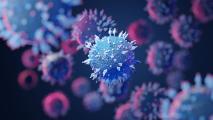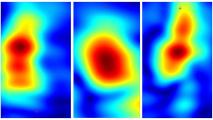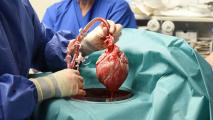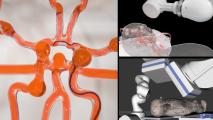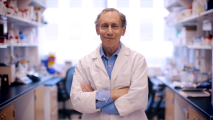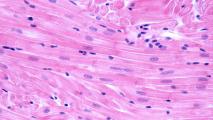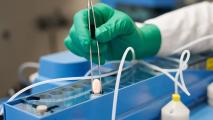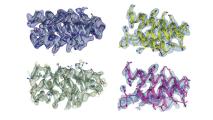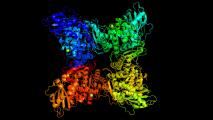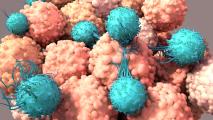
Biotech
Human history has been all but defined by death and disease, plague and pandemic. Advancements in 20th century medicine changed all of that. Now advancements in 21st century medicine promise to go even further. Could we bring about an end to disease? Reverse aging? Give hearing to the deaf and sight to the blind? The answer may be yes. And soon.
More
Moderna expects to have Omicron booster ready by Fall 2022
Moderna expects to have an Omicron booster that combines its original COVID-19 vaccine with one targeting the variant ready by Fall 2022.
5G millimeter wave tech may prevent unnecessary skin biopsies
Stevens Tech researchers have developed a device which uses the same tech as the TSA does to find skin cancer tissue without a biopsy.
A Spanish teen’s genome may hold the secret to lupus
Researchers believe they have found a single point mutation in an infection-sensing gene that causes the autoimmune disorder.
Docs discover likely cause of pig heart transplant failure
A pig virus — and not organ rejection — appears to be the reason a man who lived for two months after a pig heart transplant ultimately died.
Surprise in death data: Malaria has a U-shaped death curve
Better death records can reveal surprises about common killers like malaria — and help save lives.
Rebreather dives are wildly risky. But this might save lives.
Duke researchers have developed an early warning system for rebreather divers at risk of hypoxia.
World’s smallest DBS device reverses Parkinson’s symptoms
An ultra-small deep brain stimulation (DBS) device could increase the number of Parkinson’s patients to receive the powerful treatment.
Joystick-operated robot could help surgeons treat stroke remotely
With a modified joystick, surgeons in one hospital may control a robotic arm at another location to safely operate on a patient.
How Robert Langer, a pioneer in delivering mRNA into the body, failed repeatedly but kept going
Langer published the first paper to show that it was possible to deliver nucleic acids like RNA and DNA to the body via tiny particles.
RNA breakthrough offers a potential heart attack cure
King’s College London researchers have used RNA to regenerate cardiac tissue in pig hearts, what they hope is the first step towards a heart attack cure.
Researchers want to fight cancer — by mutating it even more
Sloan Kettering researchers have proposed a controversial way to improve immunotherapy: making cancer cells mutate on purpose.
Moderna applies for approval of COVID-19 vaccine for children
Moderna has asked the FDA to authorize its COVID-19 vaccine for children ages 6 months through 5 years.
Inspired by kombucha tea, engineers create living materials
A symbiotic culture of specialized yeast and bacteria can generate tough materials able to perform a variety of functions.
America’s “Test to Treat” has failed. Here’s how to fix it.
So far, Test to Treat has largely failed to get antivirals for COVID-19 to patients that need them — but the initiative can still be fixed.
WeChat users try to keep Shanghai lockdown protest video ahead of censors
WeChat users have turned to all manner of tricks in a cat-and-mouse game with CCP censors to keep a video about the Shanghai lockdown online.
Babble hypothesis shows key factor to becoming a leader
Researchers show that intelligence is not the most important factor in leadership, simply talking the most is.
Computer-designed miniproteins unleash a whole new kind of drugs
Using a computer program, researchers have created miniproteins that they hope can lead to new drugs.
This wristband tells you what food to buy based on your DNA
By analyzing genetic code determining susceptibility to health conditions like diabetes, it tells you which foods are best for you.
An ancient enzyme could supercharge photosynthesis
Researchers have resurrected an ancient version of the enzyme Rubisco in the hope of supercharging photosynthesis in today’s plants.
T cells and viruses, an unlikely duo, team up to kill tumors
A new Mayo Clinic-developed immunotherapy combining CAR-T cells and cancer-killing viruses looks promising in mouse models.
Get inspired with the most innovative stories shaping the world around us.













